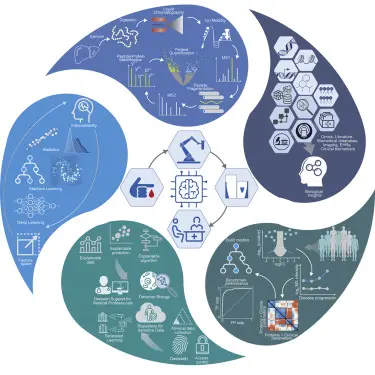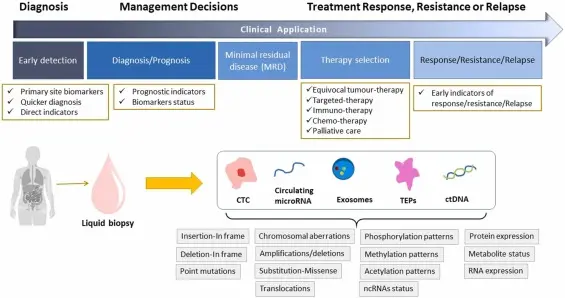Breast cancer remains one of the most prevalent cancers worldwide, representing a major public health challenge. Despite advances in screening, imaging, and therapy, there is still a need for more accurate methods of early detection, risk prediction, and treatment monitoring. At the center of this progress lies biomarker research, which identifies measurable biological signals that can reveal the presence, stage, or behavior of cancer.
What Are Biomarkers in Breast Cancer?
Biomarkers are measurable indicators that can provide critical information about breast cancer:

Diagnostic biomarkers detect the presence of cancer (e.g., HER2, estrogen receptor).
Prognostic biomarkers predict the likely course of the disease.
Predictive biomarkers indicate how a patient will respond to specific therapies.
Monitoring biomarkers track treatment effectiveness and disease recurrence.
How AI Transforms Biomarker Discovery
Data Integration
AI can combine multi-omics data (genomics, transcriptomics, proteomics, metabolomics) with clinical data and medical imaging to uncover more reliable biomarkers.
Pattern Recognition
Deep learning algorithms trained on imaging data (e.g., mammograms, MRI scans) can detect early cancer signatures not visible to the human eye.
Predictive Modeling
AI models use large datasets to predict patient outcomes based on biomarker profiles, improving personalized treatment decisions.
Accelerated Discovery
By automating data analysis, AI reduces the time required to identify new biomarker candidates, bringing discoveries closer to clinical application.
Applications in Breast Cancer Care
Early Detection and Diagnosis
AI-enhanced mammography and pathology tools can recognize biomarker patterns associated with early tumor development. For example, AI-driven liquid biopsy analysis can detect circulating tumor DNA (ctDNA) or microRNAs (miRNAs) in blood samples, offering a non-invasive way to diagnose cancer earlier.
Personalized Therapy Selection
AI can match biomarker profiles with targeted therapies. In HER2-positive breast cancer, for example, AI algorithms can analyze genomic and transcriptomic data to identify patients who would benefit most from HER2-targeted drugs or combination therapies.
Predicting Recurrence and Outcomes
Using biomarker data, AI models can forecast the likelihood of recurrence after treatment. This helps clinicians design more effective long-term monitoring strategies for high-risk patients.
Therapeutic development
Pharmaceutical companies are increasingly applying AI to biomarker-driven drug discovery. AI systems identify potential therapeutic targets from biomarker research and accelerate clinical trial design.

